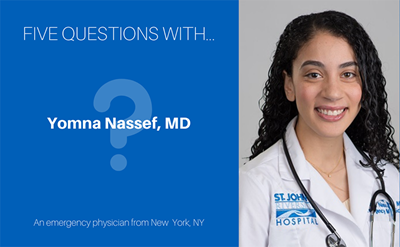WASHINGTON, D.C.—In a controversial decision, health insurance giant Anthem Blue Cross Blue Shield is warning policy holders—in Georgia, Kentucky and Missouri—that they may have to pay for their trips to the ER. The company has developed a secret list of diagnoses that they will not pay for, such as "chest pain on breathing" and blood in the urine, even if the patient thought it was a medical emergency.
"Health insurance companies are scaring people away from emergency departments, saying they will decide after the fact what is a real emergency," said Rebecca Parker, MD, FACEP, president of the American College of Emergency Physicians (ACEP). "If your insurer disagrees with your decision to visit the ER, they may now refuse to pay. These new actions violate federal law and are dangerous, because people with identical symptoms—such as abdominal pain or chest pain—may either have a deadly medical condition or a non-urgent issue. Health insurers can't expect patients to know the difference between a heart attack and something that is not life-threatening."
This new enforcement by Anthem violates the prudent layperson standard — which is in the Affordable Care Act and in many state laws and is designed to protect most Americans. This standard requires health insurance companies to cover emergency care based on a patient's symptoms instead of the final diagnosis. This means, for example, that a patient with a severe headache and vision problems who is worried about a possible stroke, but ultimately is diagnosed with a migraine, would be covered for a trip to the emergency room under the law.
"Anthem's actions are not only a violation of federal law, but put lives at risk," said Dr. Parker. "For example, a patient in her 40s came to my emergency department complaining of severe dizziness, believing she had vertigo. This easily could have been the diagnosis. She waited a full day before going to her primary care physician, because the co-pay was $200 cheaper. The physician who examined her determined that it wasn't vertigo but a stroke and rushed her to the ER. She made a full recovery but later told me, 'I can't believe I risked my life for $200.'"
A new poll from Morning Consult finds more than two-thirds of Americans (67 percent) oppose this policy to deny coverage for emergency care, which is based on secret lists of diagnoses (in Missouri there are almost 2,000 on a list that ACEP was able to obtain). More than four in 10 (43 percent) reported that they delayed or avoided seeking emergency care in the past two years out of concerns about the cost of co-pays, co-insurance and deductibles. Nearly half said their medical conditions worsened as a result.
Eight in 10 poll respondents (79 percent), once they understood the prudent layperson standard, said they supported it. In addition, six in 10 said that insurance companies are interfering with patient/doctor relationships.
"Patients shouldn't diagnose themselves out of fear their insurance company won't cover a visit to the emergency department," said Paul Kivela, MD, FACEP, ACEP's incoming president. "Burning chest pain may be heartburn, but it also can signal a heart attack. How can we possibly expect a non-medical person to know the difference?"
A 2013 study in the Journal of the American Medical Association, in fact, found that there was about a 90-percent overlap in symptoms between emergencies and non-emergencies.i
Dr. Kivela added that if you think you have the symptoms of a medical emergency, you should seek emergency care as quickly as possible.
Other findings in the poll:
- In the past two years, 20 percent of those polled said their insurance company refused to cover a visit they've made to a doctor, or hospital, or other medical service.
- More than eight in 10 (83 percent) said that if a doctor orders a medical test for a patient, the patient's insurance company should pay for it. For the YouTube video, please click here. To see the full poll results, please click here.
Poll Methodology:
This survey was conducted by Morning Consult with 2,201 adults as a national tracking poll on September 5-8, 2017, on behalf of the American College of Emergency Physicians. There is a margin of error of ± 2 percent. For complete poll results, please click here.
i Journal of the American Medical Association, 12:29:41 2013 "Comparison of Presenting Complaint vs. Discharge Diagnosis for Identifying "Nonemergency" Emergency Department Visits; Maria Raven, MD, MPH, MSc https://www.ncbi.nlm.nih.gov/pmc/articles/PMC3711676/
 American College of Emergency Physicians
American College of Emergency Physicians







